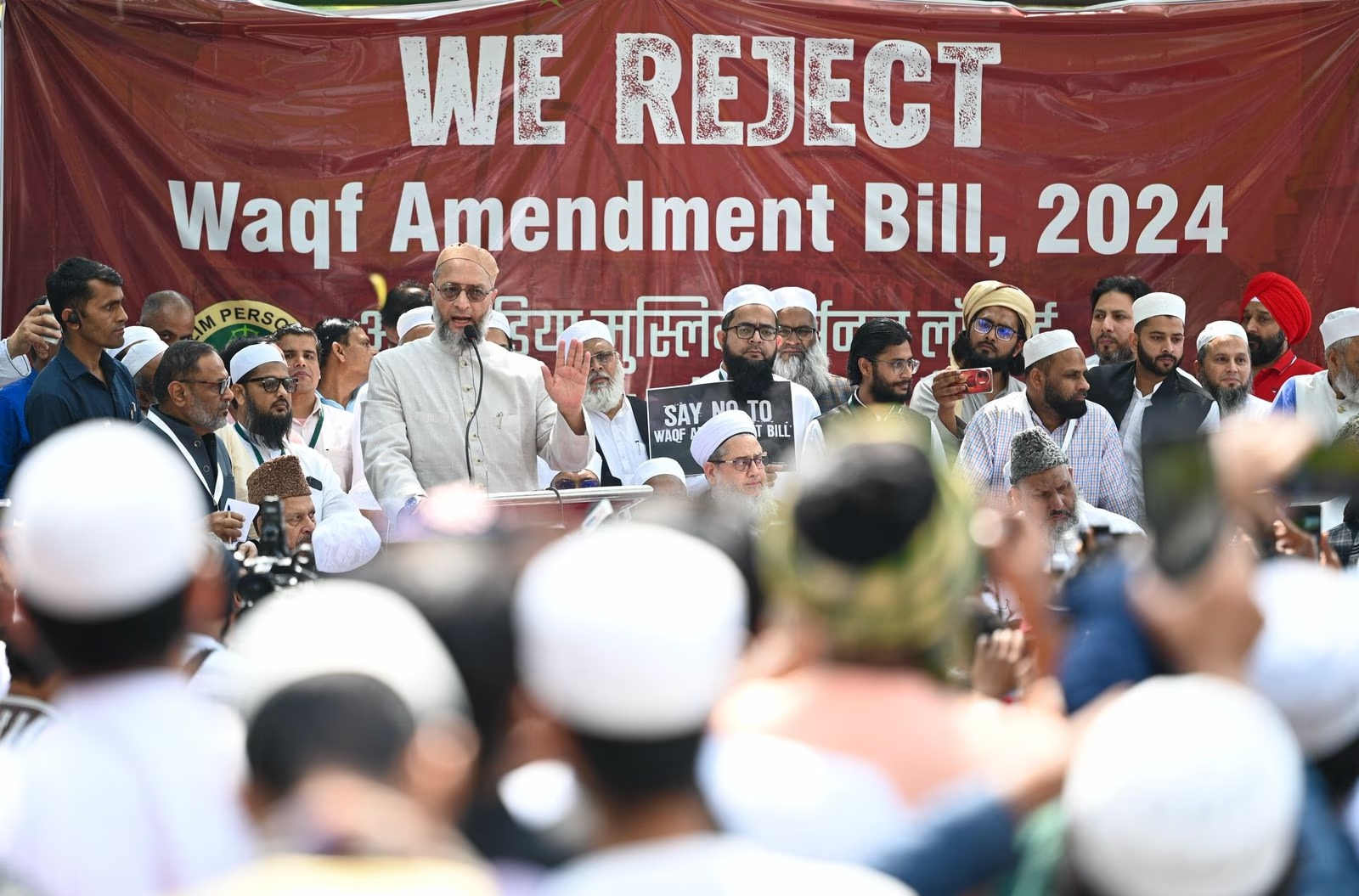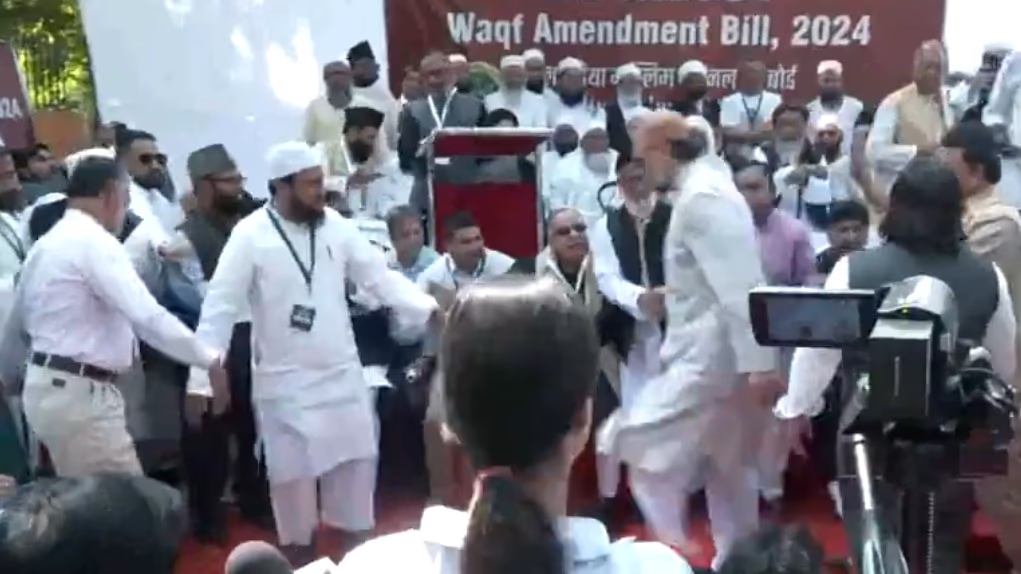The second phase of the Parliament's budget session is underway, and the Waqf Amendment Bill might be introduced in the house next week. This bill was presented in the Lok Sabha on August 8, 2024, but was sent to the JPC following a commotion. Now, the government might bring it to the Lok Sabha for approval at any moment. Muslim organizations and opposition parties are disgruntled, accusing the government of attempting to seize Waqf properties through this bill.
Government Vs. Opposition on the Bill
The government asserts that the Waqf Amendment Bill will provide the authority to regulate Waqf properties and resolve related disputes. It also believes the bill will allow better utilization of Waqf assets and offer assistance to Muslim women. The JPC, chaired by BJP MP Jagdambika Pal, approved 14 amendments proposed by BJP and its allies on January 27 this year, while rejecting 44 amendments proposed by the opposition.
The main objections from Muslim organizations and the opposition regarding the Waqf Bill are:
1.
Decisions regarding any property dispute involving Waqf can now be appealed to the High Court, whereas previously the Waqf tribunal's decision was deemed final.
2.
Waqf cannot claim ownership without a donation; previously, claiming rights made any property fall under Waqf ownership.
3.
The Waqf Board should include two members from women and other religions, unlike before when no such members were included.
4.
The Collector will be able to survey Waqf properties and has the authority to determine the property.
The bill grants the Collector the right to investigate cases where government properties are incorrectly declared as Waqf properties. However, the JPC recommended appointing a higher-ranking officer for this task, to be designated by the state government. Furthermore, registration of Waqf properties on the portal will be mandatory within six months, for which the JPC requested an extension if justified. Similarly, the bill requires notifying Waqf properties on the portal within 15 days, but the JPC recommended extending this period to 90 days.
Muslim organizations allege this bill endangers the religious and constitutional rights of Muslims, viewing Waqf properties as religious trusts rather than government property. They claim the bill undermines Waqf's autonomy by amending the existing 1995 Waqf Act, giving the government authority over Waqf property management.
Understanding Waqf
In Islamic tradition, Waqf is a religious donation intended for the benefit of Muslims. These properties cannot be sold or repurposed, nor can they be inherited, remaining forever dedicated in the way of Allah. Once declared, a Waqf property cannot be reclaimed. Many such properties are used for mosques, madrasas, and cemeteries, while others remain vacant or have been encroached upon.
Also Read:
Currently, all Waqf properties are governed under the Waqf Act 1995, which requires forming state-level boards for their management and administration. These boards comprise state government's nominated members, Muslim legislators, state bar council members, Islamic scholars, and Waqf property administrators.
9 Lakh Acres under Waqf Board
The government states the Waqf Board is one of India's largest landowners. It owns at least 872,351 Waqf properties across more than 9 lakh acres, estimated to be worth over 1 lakh crore rupees. The Waqf Board ranks as the largest landowner in India after the armed forces and Indian Railways. The government accuses significant corruption within Waqf properties and boards, introducing the Waqf Amendment Bill to reform it.

Source: aajtak
The Parliamentary Number Game
Passing the bill in Parliament is not expected to be challenging for the government since it has already passed through the JPC. The government holds a substantial majority in the 542-member Lok Sabha, and regardless of voice votes or division voting, the bill is likely to be passed smoothly. The NDA has 293 MPs in the Lok Sabha, including 240 from the BJP. Meanwhile, the INDIA bloc holds 233 MPs, including 99 from Congress. Some MPs are independents, while others belong to neither the NDA nor the INDIA bloc.
Also Read:
The Rajya Sabha currently has 236 members, with the BJP having 98 members. The NDA membership stands around 115. With six nominated members, the NDA's support increases to over 120, easily crossing the majority mark.
In the upper house, Congress has 27 members, while its allies have 58 members, totaling around 85 in the opposition alliance. Other parties with a significant presence are YSR Congress with 9 members and BJD with 7 members. AIADMK has four members, besides three independents and representatives from smaller parties, who align with neither the NDA nor the INDIA bloc.
Protests Against the Bill
On Monday, the All India Muslim Personal Law Board (AIMPLB) led a protest at Delhi's Jantar Mantar against the bill, joined by representatives of various opposition parties, including Asaduddin Owaisi. The board states it has reached out to key NDA allies JDU's Nitish Kumar and TDP chief Chandrababu Naidu, urging them to oppose the bill to protect minority rights in Parliament.
However, even if these major parties oppose the NDA in Parliament, the likelihood of the bill's passage being hindered is minimal. The JDU and TDP have already expressed support for the bill.




